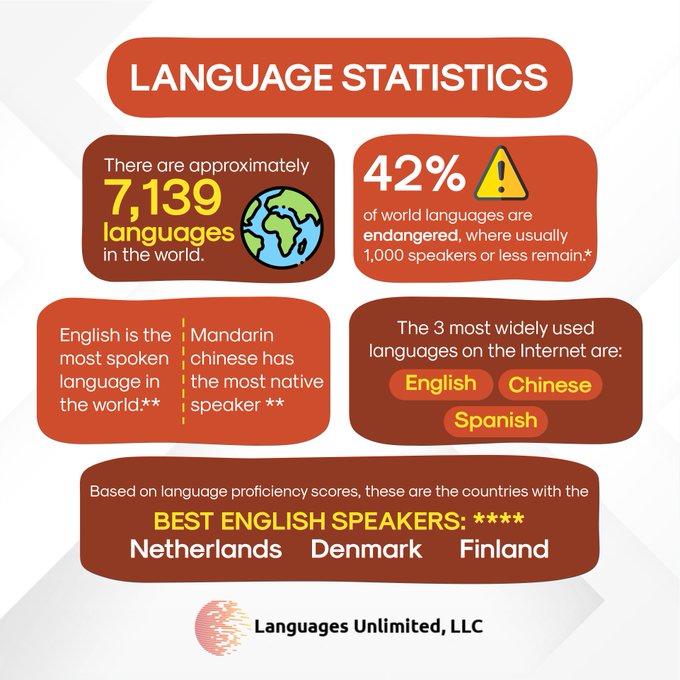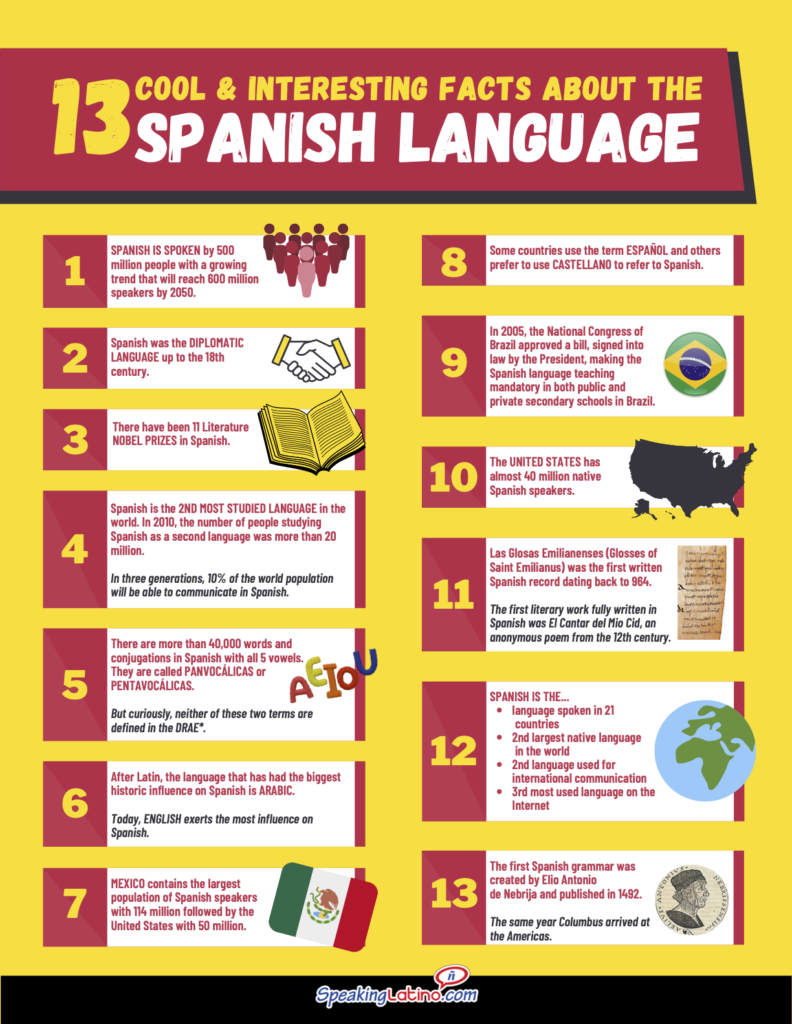1. Introduction to Facts about Languages
Dive into a captivating article titled “Facts About Languages You May Have Never Heard Of,” where the world of linguistics unfolds in all its mesmerizing diversity.
Thank you for reading this post, don't forget to subscribe!This linguistic journey explores extraordinary languages, from the intriguing clicks and pops of !Xóõ to the poetic cadence of Pirahã, revealing linguistic marvels that challenge our preconceptions. These languages aren’t merely words; they represent distinct cultures and worldviews.
2. Facts about Languages
- Language came from the Latin word lingua (tongue).
- On average, people only use a few hundred words in daily conversation, while most languages have 50,000+ words.
- There are over 7,000 languages worldwide, and most of them are dialects.
- Only 23 languages account for more than half of the world’s population!
- About ⅔ of all languages are from Asia and Africa.
- onomatopoeias are not shared across languages.
- Language first evolved 50,000–150,000 years ago around the time of the modern Homo sapiens.
- The Bible is the most translated book, followed by Pinocchio.
- About 2,400 of the world’s languages are in danger of becoming extinct, and about one language becomes extinct every two weeks.
- There are over 200 artificial languages in books, movies, and TV shows, such as “Klingon.”
- At least half of the world’s population is bilingual!
- Cryptophasia is a language phenomenon that only twins, identical or fraternal, can understand.
- William Shakespeare invented 1700 words.
- Many linguists believe that language originated around 100,000 BC.
- South Africa has the most official languages with 11.
- There are about 24 official languages spoken throughout Europe.
- The word “goodbye” is a combination or contraction of “God be with you.”
- Learning a second language can improve memory and slow the process of aging. This is one of our favorite language facts!
- Cambodian language has the longest alphabet with 74 characters.
- Botswana has a language made up of five primary “click” sounds.
- The language of La Gomera spoken off the coast of Spain consists entirely of whistles.
- Hawaiians have over 200 different words for “rain.”
- Russian was the first language in space.
- Mandarin Chinese is the most spoken language in the world. If you speak it, you can speak to 13% of the world’s population!
- The English word “alphabet” comes from the first two letters of the Greek alphabet – alpha and beta.
- The letter “N” is the most common English consonant.
- Over 300 languages are spoken in London alone. No matter what, you have a pretty good chance of finding someone to speak with!
- About 30% of English words come from French.
- The first printed book was in German.
- German is the most spoken language in Europe. Four countries have it as their official language.
- German words can have three genders: masculine, feminine, and neuter. Most languages only have either masculine or feminine.
- The Papuan language of Rotokas only has 11 letters, making it the smallest alphabet.
- French is the primary foreign language taught in the UK.
- Over 20,000 new French words are created each year.
- Other than English, French is the only language taught in every country.
- Spanish contains about 4,000 Arabic words.
- Spanish is the second most spoken language in the world.
- Basque is a language spoken in the mountains between France and Spain, and it has no relation to any other known language.
- Physical contact during a conversation is completely normal when speaking Spanish.
- The United States has no “official language.” Most people just assume it’s English.
- The US has the second-highest number of Spanish speakers, after Mexico.
- More than 1.5 million Americans are native French speakers.
- The languages spoken in North Korea and South Korea are different. They have distinct vocabularies and grammatical rules due to being separated for so long.
- The Florentine dialect was chosen as the national language of Italy. Most regions in Italy primarily speak their own dialect to this day.
See Also: 11 unusual facts about European languages you didn’t know
The 20 European countries with the best English accent

- Kinshasa, the capital city of the Democratic Republic of the Congo, is the world’s second-largest French-speaking city after Paris.
- Italian is a minority language in Brazil.
- Japanese uses three different writing systems: Kanji, Katakana, and Hiragana.
- Hindi didn’t become the official language of India until 1965.
3. Interesting Facts about English

4. Interesting Facts about Spanish








